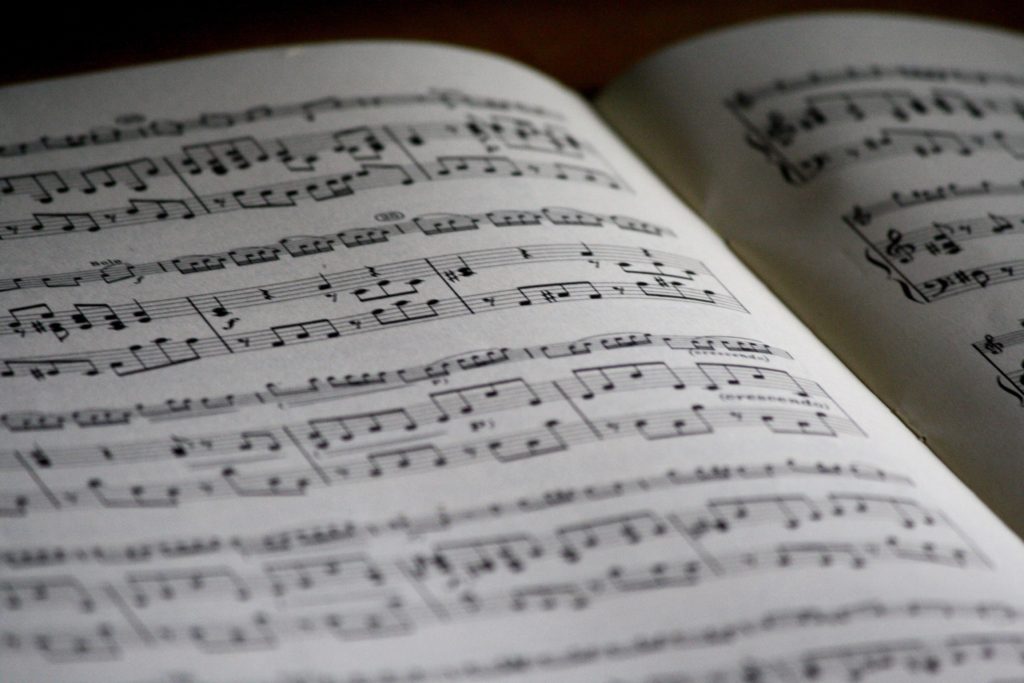Music Therapy and Dementia Care
Posted on March 20, 2018 | This post was written by The Woodleigh

Alzheimer’s and dementia have a severe impact on those they afflict, but the impact doesn’t stop there. The loved ones left in the wake of dementia are often lost. They watch as the personality of their loved one appears to melt away, leaving agitation and confusion in its place. The lack of viable options to combat the symptoms of dementia makes this all the more difficult.
Over the past several years, music therapy has been shown to be an effective remedy for some of the symptoms of dementia at skilled nursing facilities across the country. The benefits bestowed by music include reduced agitation and paranoia, an overall improvement in mood, and even cognitive benefits such as improved memory or communication skills. While it’s not a magical cure-all, nor does music affect every dementia patient in the same way, music has proven to be a beacon of hope for many suffering from dementia.
Music Stimulates the Brain
It may come as a surprise, but exactly how our brains process music is not particularly well understood. However, the scientific community has unearthed a few key facts that help to explain the reason behind music therapy’s positive impact. For one, music is processed on many different levels by many different parts of our brains. These wide-ranging effects seem to extend to the limbic system, where we process many of our emotions.
That tie to our emotions is key. For dementia patients, the music that has the strongest effect is tied to their past. One of the reasons for this is that short-term memories are typically the first to go, with long-term memories left somewhat further outside the reach of dementia, at least for a time. These memories are stored in the hippocampus, which is a part of the limbic system.
Patients who have been unresponsive, even for years, have perked up at the sounds of music they have a strong connection with. There are stories of uncommunicative patients slowly beginning to sing along to songs they recognize from their past. Because music can access the emotional centers of the brain so easily, this connection can happen unconsciously, cutting through the agitation or confusion that can waylay other therapeutic attempts.
Active Music Therapy
Many of the benefits we described above fall under the umbrella of “passive music therapy”; that is, listening to music. Active music therapy involves getting dementia patients involved in the making of music. Actively making music can reach beyond the limbic system to the cerebellum, which is responsible for balance and movement. Whether through drums, harps, or simply a patient’s voice, music therapists often progress from passive listening to bringing patients into the creation of music.
This musical participation continues many of the mood-related benefits of passive music therapy. It also brings an exercise component to the proceedings. For instance, playing the drum is a very simple movement that can be done even if muscles in the hands have grown weak from lack of use. Over time, drumming can build strength for tasks such as holding a cup.
Please call The Woodleigh of Baton Rouge at 225-272-1401 to learn more about our specialized Memory Care programs. We proudly incorporate the latest research and techniques designed to maximize and maintain the physical and mental well-being of each resident. We also encourage you to read up on the Institute for Music and Neurologic Function, the responsible for leading the charge when it comes to music therapy for dementia care.
